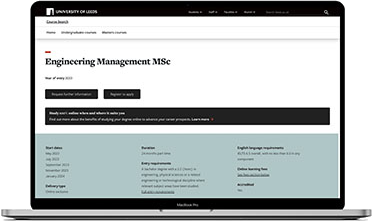4 Ways Corporate Social Responsibility is Impacting Engineering Projects
Engineering Management
The need for engineering companies to invest in socially responsible initiatives continues to increase in priority amidst fluctuations in government legislation, and demands from consumers, stakeholders, and pressure groups.
UNIDO (the United Nations Industrial Development Organisation) define Corporate Social Responsibility (CSR) as a management concept whereby companies integrate social and environmental concerns in their business operations and interactions with their stakeholders. Whilst this may require greater investment, integrating CSR can boost an engineering organisations brand image, employee morale and productivity.
These CSR initiatives can range from mitigating health and safety risks, implementing sustainability and pro-bono initiatives, and developing diversity and inclusion in the industry. In this article, we assess how these four methods are critically impacting projects in the sector.
Learn more about our Engineering Management course1. Health and safety
According to the Health and Safety Executive (HSE), there are many thousands of accidents and cases of ill health reported in engineering workshops every year, including lifting, and moving goods, slips, trips and falls, electrical accidents, and occupational diseases such as dermatitis, deafness, and asthma.
As a result, it’s crucial for engineers to set out standards and adhere to health and safety legislation practices, such as the Health and Safety Work Act 1974 and the Management of Health and Safety at Work regulations 1999. This includes regularly conducting and updating risk assessments and organising provisions for accidents, emergencies and first aid to ensure the safety of staff and workplaces.
These procedures may require significant time and expenditure, however there can be a substantial, positive return on investment in engineering health and safety regulations, such as firms avoiding productivity and property losses, reducing future insurance premiums, and the risk of occurring fines.
2. Sustainability
Sustainability is another key corporate social responsibility which professional engineers must implement in their everyday working practices, by coming up with ways of working and solutions that maximises social value and reduces environmental impact.
From a social perspective, engineers must engage with local communities and consider their views with strong judgement and leadership before proceeding with design plans and submissions that address environmental and economic concerns. The Institution of Civil Engineers (ICE) outline how a failure to do so, or a lack of suitable engagement with local communities could result in delays, negative press, and even failures in delivering schemes.
Similarly to health and safety compliance, engineers must also consistently conform to environmental sustainability legislation such as the Environmental Protection Act 1990, the Climate Change Act 2008, and the Restriction of use of certain Hazardous Substances (RoHS) Directive 2011. Alongside this, a growing expectation from consumers and stakeholders to do business with the lowest possible consumption of raw materials, water and energy is initiating engineers to adopt full life cycle assessments and re-use, recycle, decommission, and securely dispose of components and materials as normal practice.
3. Pro-bono engineering
Leading engineering and design company Arup, define pro-bono engineering as volunteer engineers undertaking voluntary work to improve the lives of people and protect the environment. Pro-bono engineering can also include professionals who work at a significantly reduced cost to a client which is subsidised by their employer.
The purpose of pro-bono engineering is for firms to offer their experienced staff to other organisations at a lower rate to benefit communities and small businesses who otherwise could not afford to pay for the employee’s skill sets. Although pro-bono work is more widely recognised in corporate law, this corporate social responsibility is also seeing a growing trend in the engineering industry with more organisations adopting schemes to give back to the sector and develop their brand image.
For engineering managers, working with other organisations means they can collaborate with smaller firms in the industry and find inspiration from their practices which can enhance morale and productivity, and develop their teams’ skills whilst their salaries continue to be paid for by their standard employer.
4. Equality, diversity and inclusion (EDI)
In 2021, UK charity, the Royal Academy of Engineering (RAEng) reported that in professional engineering institutions, women represent only 30% of those working on boards and committees, and only 18% of those in leadership roles are from minority ethnic backgrounds. Despite these low statistics, the representation is increasing, and the RAEng is a real driving force for change in this area, ensuring employers are supported and challenged to increase diversity and cultivate inclusive cultures in their organisations.
To achieve this, engineering organisations are now being benchmarked on their progress against EDI indicators such as pay gaps, the career progression of underrepresented groups, and their investment in engineering training programmes which encourage people to work in the sector, increasing diversity of the talent pool.
As a result, engineering firms must address changes in the salaries they are offering their employees and provide them with opportunities for growth, whilst consequently, their teams will benefit from enhanced creativity as a result of ideas sharing by employees who have a broader range of experiences and knowledge.
Why is corporate social responsibility so important to engineers?
Leaders and managers of any engineering activity, be this in the private or public sector, need to make responsible, ethical decisions that protect the safety and health of an organisations employees, users of the organisations products and the wider public. Operating with a strong regard for safety and health protects not only people, but also the organisations reputation and future.
If you want to become a multiskilled professional at the forefront of engineering and the CSR initiatives impacting it, you should consider becoming an engineering manager with the help of our specialised online Masters in Engineering Management. Our module in Safety and Corporate Social Responsibility will equip you with the ways of thinking and the tools needed to conduct engineering activities in a fashion that is safe, does not have negative impacts on health and is socially responsible.
“I have enjoyed all the modules that I have studied so far as they all have their own nuances which make them interesting. The Safety and Corporate Social Responsibility module enabled us to make decisions and try things out without causing any harm to anyone”

Did you enjoy this blog? Here’s some related engineering content that you may be interested in:

Want to learn more about our online Engineering Management course?
Check out the course content and how to apply.

